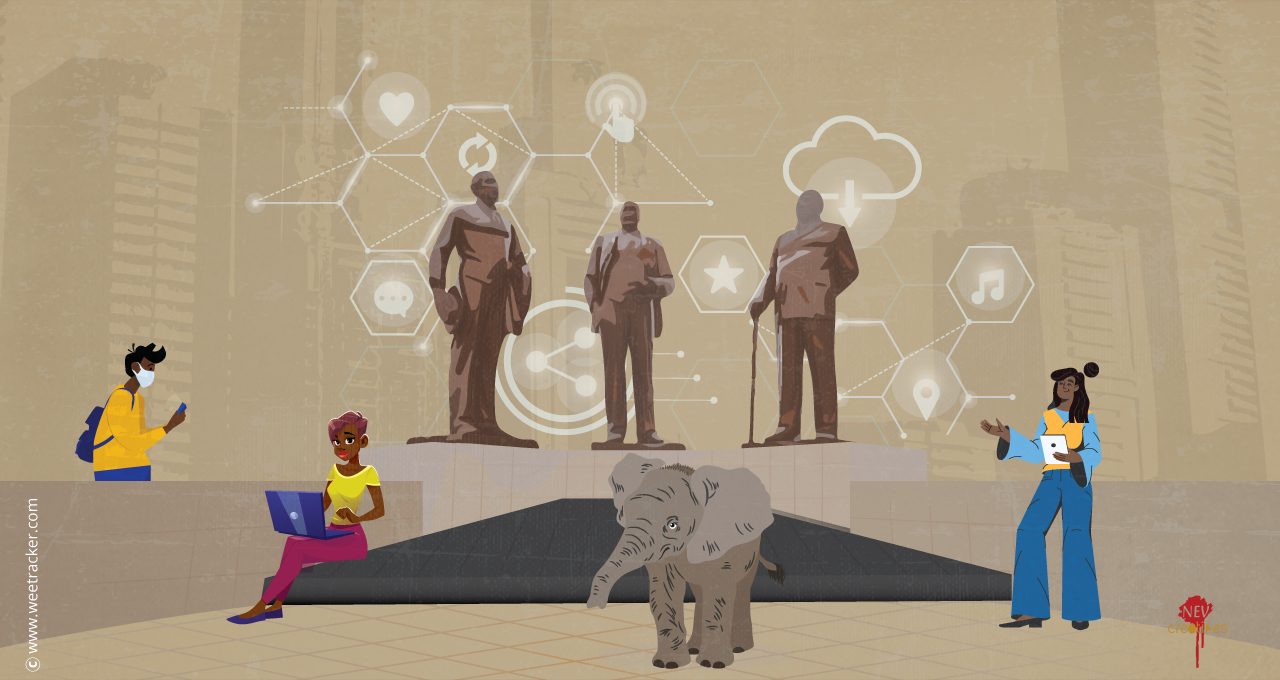Orange’s First Commercial 5G Network In Africa Is Live In Botswana

Orange, a French mobile telecommunications behemoth with operations in at least 17 African countries, has kicked off its fifth-generation network connectivity project in the continent. Recently, the operator’s (Orange Middle East and Africa) Botswana unit launched 5G commercially to become Orange’s first African affiliate to deploy the technology.
By virtue of the development, Botswana is the [latest in the continent and] fifth country in the Southern African hemisphere to receive a 5G infrastructure. A close neighbor to South Africa, Botswana’s entry brings the number of African countries in the next-gen internet connection bubble to more than a dozen. Previous efforts shed the spotlight on Vodacom Tanzania and more recently, Telkom South Africa.
Orange Botswana launched the 5G play in Greater Gaborone and Francistown, reportedly providing the service to 30 percent of the two urbanities’ total population. For context, Gaborone is the capital and largest city in Botswana, while Francistown is the second-largest [city] in the country. According to the firm, the deployment would be extended to other cities by early next year.
Available to residential customers and small/medium enterprises, Orange Botswana’s new fixed wireless 5G access starts at 15 MB/s for prepaid and 20 MB/s for postpaid. The mobile bundle costs about USD 53.80 (BWP 699) per month. That’s some 10 percent of the average monthly salary in the country.
Already flexing a use case, the telecoms operator collaborated with MRI Botswana—a leading provider of integrated and innovative healthcare solutions—to introduce Connected Ambulance, a project enabling doctors to guide paramedics on life-saving procedures whilst they are on their way to hospitals. The telemedical platform, which runs on 5G, looks to partner with Botswana’s government and enterprises—to save more lives.
Meanwhile, the firm in September opened a 5G laboratory in the Ivorian capital of Abidjan, where regional 5G demos are currently being hosted. Up until this year, Orange’s telecommunications footprints in Africa were possible wholly via 4G.
Jerôme HENRIQUE, CEO of Orange Middle East and Africa, said: “The launch of 5G technology in Botswana will allow us to scale up this technology and gain experience for other Orange countries across Africa. The benefits and potential impact of this are promising”.
“It will help promote Africa’s digital inclusion, resulting in socio-economic growth and job creation. It is also ensuring Africa’s skills development on digital management tools and is in line with the ambitions of the African Union “Digital Transformation for Africa (2022 – 2030)”. It begins here and now, in Botswana,” he added.
Interestingly, the country’s 5G debut came quite hot on the heels of the unveiling of Botswana’s first Orange Digital Centre, a community-based initiative designed to help fill the gaps tanking national digitization efforts and groom young people for employment opportunities in the emerging digital ecosystem.
And, indeed, it does appear that Botswana is intentionally, however gradually, putting itself in the position from where it would be easier to nurture its fetal tech economy. In an exclusive WeeTracker interview published in September, it was ascertained that while Botswana looks left far behind, the country is quietly channeling its tech potential.
“Since it’s quite small, it makes sense for Botswana to become a place where tech companies come to launch, after which they can expand throughout the region. From my perspective, the country’s digital ecosystem is positioning itself in likeness to Rwanda as East Africa’s tech launchpad, however marginally differently,” said Mooketsi Bennedict Tekere, General Partner at Pulaspace—a local startup investment-focused platform.
Orange claims that 1 of every 10 Africans uses its services; its Middle East and Africa (MEA) operations, in which it claims to invest USD 1 B yearly, generated USD 6.6 B in revenues and reached over 135 million subscribers in 2020.
The same year, it completed Djoliba, a fiber backbone layout comprising over 10,000 km of terrestrial fiber and 10,000 km of undersea cables. It was a first-of-its-kind that connected the capital cities of Burkina Faso, Côte d’Ivoire, Ghana, Guinea, Liberia, Mali, Nigeria, and Senegal.
Since last year, the company has been mulling expanding its mobile network operations to Nigeria, the most populous country in Africa, and South Africa, the continent’s most industrialized economy.
As Botswana joins the 5G fray in Africa, the continent is gradually putting itself on the world map in terms of number of rollouts. However, the problem lies in effectively circulating the smartphones that support the network, reason the service is yet reserved for a selected few.